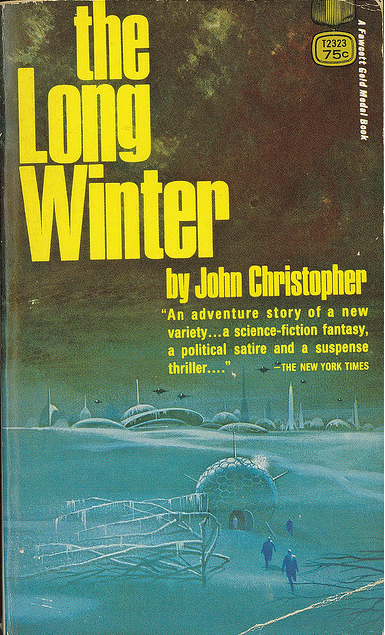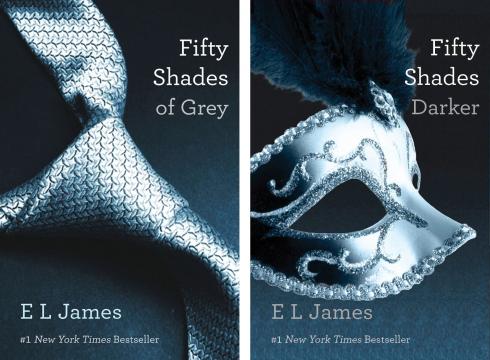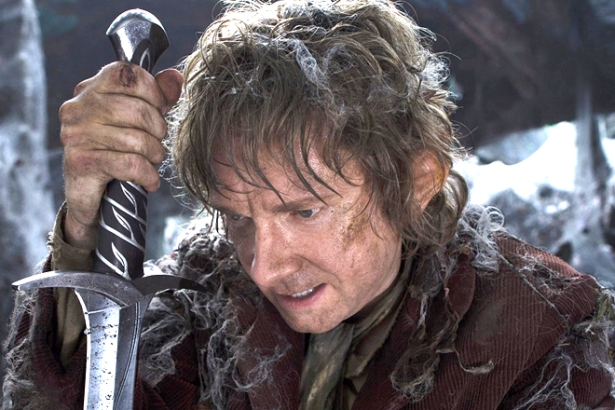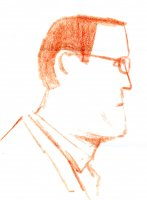A while back I wrote about the gentlemanly ideal in Trollope. Specifically, I argued that, while the idea of a gentleman might be used as a way to criticize or undermine the ideals of capitalism, it also seemed inseparable from traditional prejudices, like anti-semitism. So in Trollope’s novel The Prime Minister, the evil capitalist who cares only for money is also a Jew. Capitalism may promote a corrosive individualism, but what’s corroded is in no small part traditional social arrangements and prejudices, such as those against Jews. From the perspective of Trollope’s novel, there doesn’t seem to be any way to retain a communal ethics without preserving a nativist and explicitly inegalitarian homogeneity.
Trollope’s novel The Claverings also contrasts capitalism with gentlemanliness, though to somewhat different effect. The action of the novel begins when Julia Brabazon jilts her lover, Harry Clavering, in order to marry a dissipated duke. Julia says, straight out, that she is marrying for money — a choice that she soon comes to see, and which the novel very much sees, as a sin. The business of the book becomes, to no small degree, that of punishing Julia for her mercantilism. This is accomplished by smearing her good name; the Duke dies within a year, but before doing so he falls out with his new wife, and spreads it about that she has been unfaithful to him. As a result, and thanks to the norms of the day, she is viewed as a fallen woman, and no one will speak to her. She is left almost entirely alone with her money, a pariah punished (albeit for the wrong crime) by social ostracism.
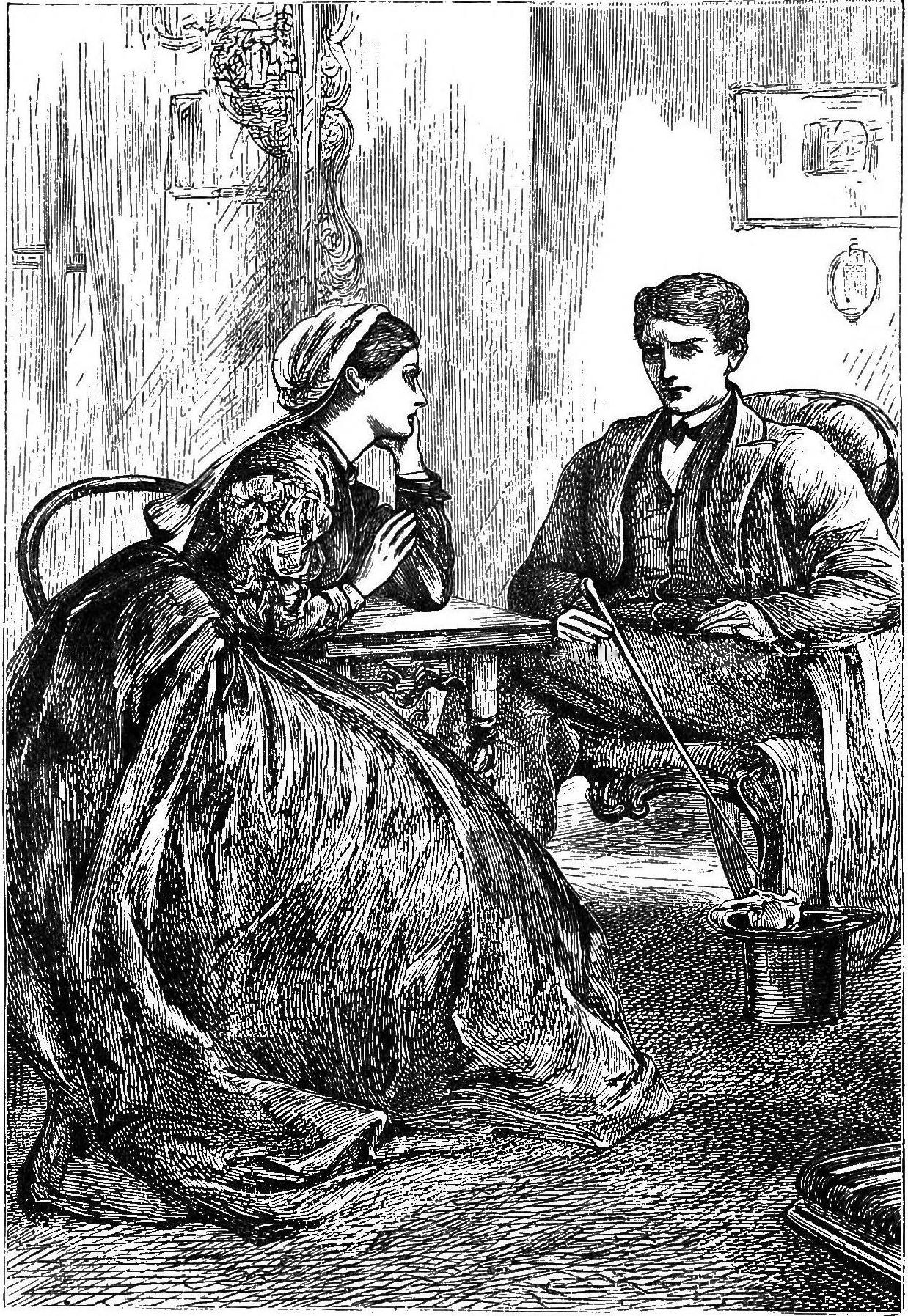
Harry Clavering and Lady Ongar by Mary Ellen Edwards
The market destroys Julia…but other characters aren’t so unfortunate. Julia’s first lover, Harry Clavering, for example, seems pretty much as perfidious as his ex — but instead of chastisement, the book bends over backwards and then some to make sure he gets everything he wants. After Julia leaves him, he makes another engagement to a bland angel-in-the-house type named Florence Burton — the daughter of a civil engineer, from whom Harry is learning his trade. Because Harry is poor, the marriage must be delayed for some time — and in the meanwhile, Julia returns with her husband dead and however many thousands and thousands of pounds in hand. Harry all but proposes to her again, effectively jilting Florence as he himself was jilted. But whereas the first jilting makes Julia miserable forever, the second barely slows Harry down. He soon decides to stay true to Florence, no one holds his vacillation against him — and then Trollope improbably uses a storm at sea to kill off all the people between Harry and a lucrative baronetcy. All of which is especially frustrating since, as Trollope admits at several points, Harry is a weak and characterless nonentity, whose main talent is making himself pleasing to women of greater worth than himself.
To some degree, it seems like Harry’s saving grace is in fact his very worthlessness; or, to put it another way, his very incapacity for measuring things through the market. While he sets himself on the path to becoming a civil engineer, it’s soon clear that he has little capacity for work or for pinching pennies. Though he himself is not wealthy, his family is related to nobility. Harry is good in a drawing room, and lovely to talk to, but everyone from his fiancees to his coworkers can see that the life of a capitalist go-getter will make him miserable, poor, and bitter. Indeed, Julia refused to marry him not just because she wanted money herself, but because she felt that without money he would be miserable himself.
It is, then, Harry’s hereditary laziness, the in-bred upper-class parasitism, which makes him a hero. His snobbish inability to provide for himself is why Providence (in the form of Trollope’s storm at sea) shines upon him. On the other hand, Julia’s pragmatism, and, indeed, her ability to withstand adversity (she stays by her husband’s side even while he is calumnating her and dying horribly of drink) is why Providence is against her. She is much the more attractive character of the two — she suffers and loves and fights against great odds, and with all her heart, while Harry’s emotions all seem filtered through a whining tremulous half-assedness. But it is the half-assedness of God’s landed Englishmen, while Julia’s capacity smells of thrifty bankers and brimstone.
There are other competent men of business in the novel; Thomas Burton, Harry’s eventual brother-in-law, is a hard-working civil engineer who has a happy family and is in nowise punished for his ambition or his efficiency. A man who turns his hand to the making of money is forgivable, at least, even if a woman is not.
Trollope has a great deal of sympathy for Julia as well; he takes care to insist that she has been wrongly accused, and even more care to have us feel her loneliness, her love, her remorse, and her pain. But for all that, she is punished, and punished (even by her own estimation) justly.
Which, as with The Prime Minister, leaves the modern reader with something of a dilemma. Trollope’s traditional world, with its rules of conduct, is able to condemn acquisitiveness and the logic of consumption and capitalism. But that criticism seems to be inextricable from traditional class hierarchies and (in this case) traditional gender roles. The Claverings rejects the cutthroat morality of the market, but in doing so, it has to plump for a world in which society and God ruthlessly work to maintain Harry Clavering in the style to which he is accustomed.
Of course, capitalism has its own lazy plutocrats, and the egalitarianism of hard work and opportunity is mostly a cynical myth. But is the myth more cynical, or more harmful, than the worship of tradition for tradition’s sake? If we reject the market, does that mean Lady Ongar has to lose and Harry Clavering has to win? There’s nothing quite like 500 pages of Trollope’s conservatism to make me feel like maybe modernity is worth keeping after all.

